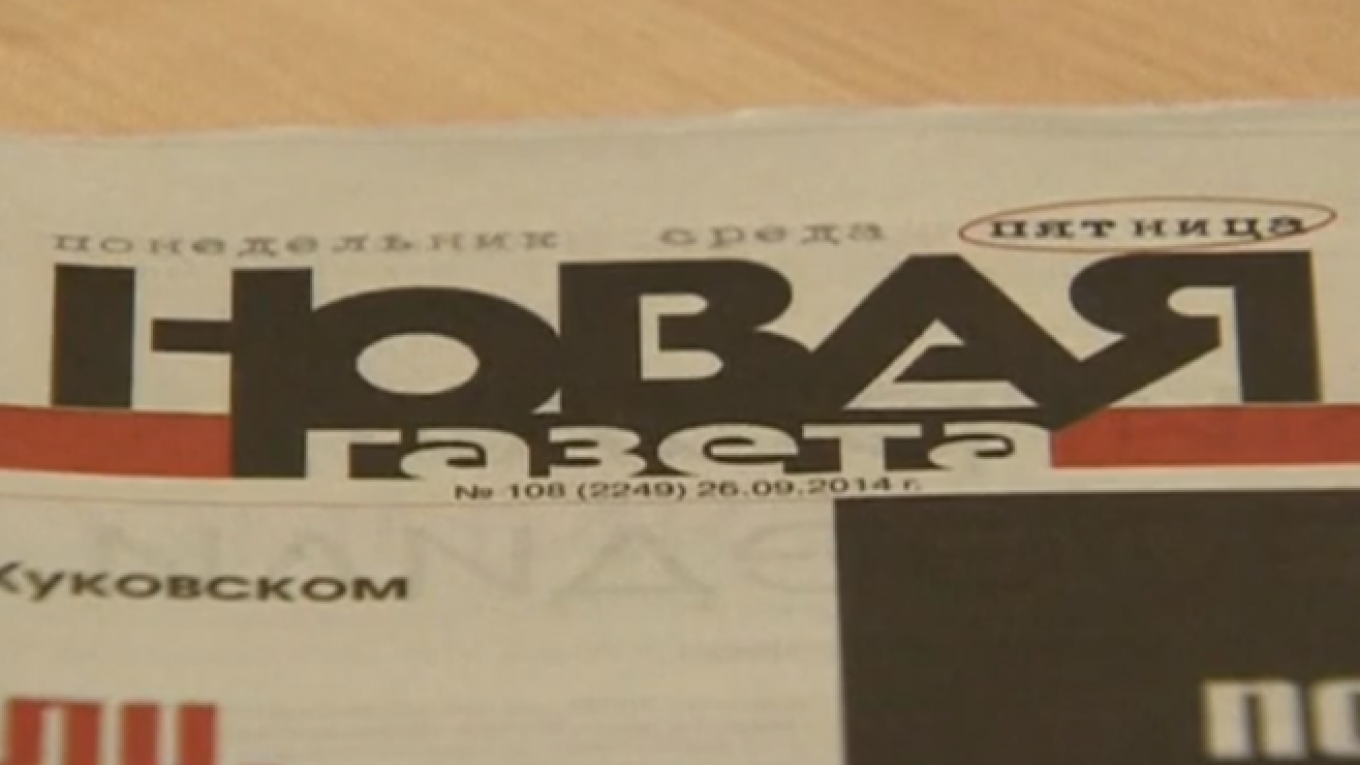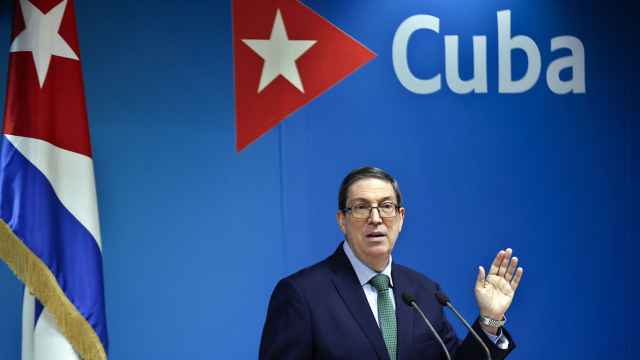Opposition-minded newspaper Novaya Gazeta has been hit with an extremism warning by Russia's media watchdog, prompting near immediate speculation of an impending crackdown on independent media outlets.
A statement on the agency's website said Friday that the newspaper's editors had been warned about the "inadmissibility of using the mass media to carry out extremist activities."
After receiving the written warning, the newspaper has 10 days to delete the material considered "extremist" from its website.
Should it fail to do so, Novaya Gazeta risks its website being blocked. In accordance with Russian law, two written warnings within a 12-month period are grounds to revoke the media outlet's registration certificate.
The newspaper, which was tipped as a contender for this years' Nobel Peace Prize, has been relentless in its coverage of Russia's involvement in the Ukraine conflict.
It has published several exposes on Russian troops believed to have been killed while fighting in eastern Ukraine, offering the testimony of soldiers' wives who said their husbands were sent there for military operations.
But the extremism warning stems from an article published Sept. 10 on the Novaya Gazeta website, the Izvestia newspaper reported, citing the deputy head of the federal media watchdog, Maxim Ksenzov.
Ksenzov was cited as saying the reason for the warning was an article written by Yulia Latynina, titled "If We Are Not the West, Who Are We?"
In the article, Latynina criticizes the anti-Western stance of Russian lawmakers, comparing their policies to those of Nazi leader Adolf Hitler.
Russia's law on extremism has been the subject of great controversy since it was first adopted in 2002. Many say the vagueness of what constitutes "extremism" allows authorities to use the law as a political weapon to silence critics.
A Message from The Moscow Times:
Dear readers,
We are facing unprecedented challenges. Russia's Prosecutor General's Office has designated The Moscow Times as an "undesirable" organization, criminalizing our work and putting our staff at risk of prosecution. This follows our earlier unjust labeling as a "foreign agent."
These actions are direct attempts to silence independent journalism in Russia. The authorities claim our work "discredits the decisions of the Russian leadership." We see things differently: we strive to provide accurate, unbiased reporting on Russia.
We, the journalists of The Moscow Times, refuse to be silenced. But to continue our work, we need your help.
Your support, no matter how small, makes a world of difference. If you can, please support us monthly starting from just $2. It's quick to set up, and every contribution makes a significant impact.
By supporting The Moscow Times, you're defending open, independent journalism in the face of repression. Thank you for standing with us.
Remind me later.






